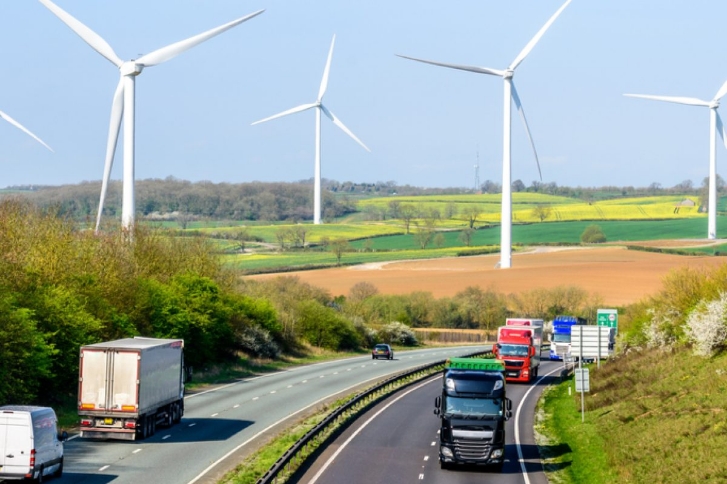The intersection of food chain supply and climate threats
Climate change is a real force in the world today, and it is having a strong impact on multiple sectors, including the logistics industry. We have already discussed the challenges of establishing a sustainable supply chain. This article outlines what the climate change threats are to logistics, what we can do to reduce carbon emissions as an industry, and how National Logistics Institute can help you build resilience in your business.
Climate change threats to the logistics industry
Carbon emissions
Carbon emissions greatly influence climate change. Most logistics vehicles create CO2 in the process of combustion of hydrocarbon fuels. In addition, events that occur earlier in the supply chain relating to agriculture and mining are often responsible for making and emitting other emissions like methane.
Extreme weather
Logistics infrastructure such as bridges, ports, and highways are all vulnerable to the effects of extreme weather brought on by climate change. All extreme weather events, from flash flooding to out-of-control fires, take their toll on transport infrastructure.
Higher temperatures
Food supply chains rely on agriculture, which in turn depends on a mild and appropriate climate for growing crops. Some of the world’s most critical agricultural production zones are now threatened by rising global temperatures.
Financial impacts
Climate change can have long-term and short-term financial impacts on the logistics industry, particularly concerning freight supply chains. Food and money may be wasted due to hostile weather conditions, and the cost of fuel and materials may rise. Smaller companies may go out of business as the harsher conditions make them unviable.
What can we do about it?
Famous shipping companies like DHL and UPS are making changes to influence their environmental footprint. DHL uses electric fleets and cargo bikes and invests in warehouse technologies to meet the goal of zero carbon emissions by 2050. UPS, for their part, use electric vehicles, route optimisation software for fuel efficiency, and they use sustainable packaging. It’s not always hard to be sustainable. Sometimes it just takes a bit of thinking outside the box. Here are some ways your logistics company may be able to curb your environmental impact:
Implement route optimisation software
Route optimisation software ensures fuel efficiency by pre-planning routes that make the most of petrol mileage. This software is particularly beneficial for delivery drivers and considers weather, traffic conditions, roadblocks, and more factors while planning travel routes. The result is significant savings on fuel costs and fewer vehicles on the road, not to mention fewer emissions created.
Incentivise slower delivery
While the immediate gratification culture may make it seem like same-day deliveries are essential, they also chew up resources. All the extra transportation and infrastructure needed to get deliveries made the next day undoubtedly contribute to emissions. Offering giveaways or discounts to customers who opt for longer delivery times could make your business more sustainable.
Train your staff to drive safely
Aggressive driving behaviour is not only dangerous to fellow drivers on the roads, but it also wastes petrol. Acts like sudden breaking and harsh accelerations take their toll on fuel efficiency. Training staff members in safe driving practices is an investment in time and money that will pay off in the long run.
Offer a pickup service
Delivering products is time-consuming and requires many resources, but when you offer a pick-up service from your store or warehouse, you hand over the responsibility of transportation. Curbside pick-up or store pick-up is a standard option now, and many customers prefer it, as they save on delivery fees.
Thinking about how your company can reduce carbon emissions?
As discussed above, there are measures we can take to reduce our carbon footprint as key players in the logistics industry. The most important thing we can do is to build resilience in our businesses. A key aspect of strength for business is to train and retain good staff members who seek job satisfaction and career progression from their role. For many employees, having a company that invests in them with high-quality training is highly valued. We may not be able to control climate change, but we can look after our people and strengthen our businesses to cope with what is to come.
Contact us at National Logistics Institute to learn more about how you can train your logistics staff to lighten their impact.

